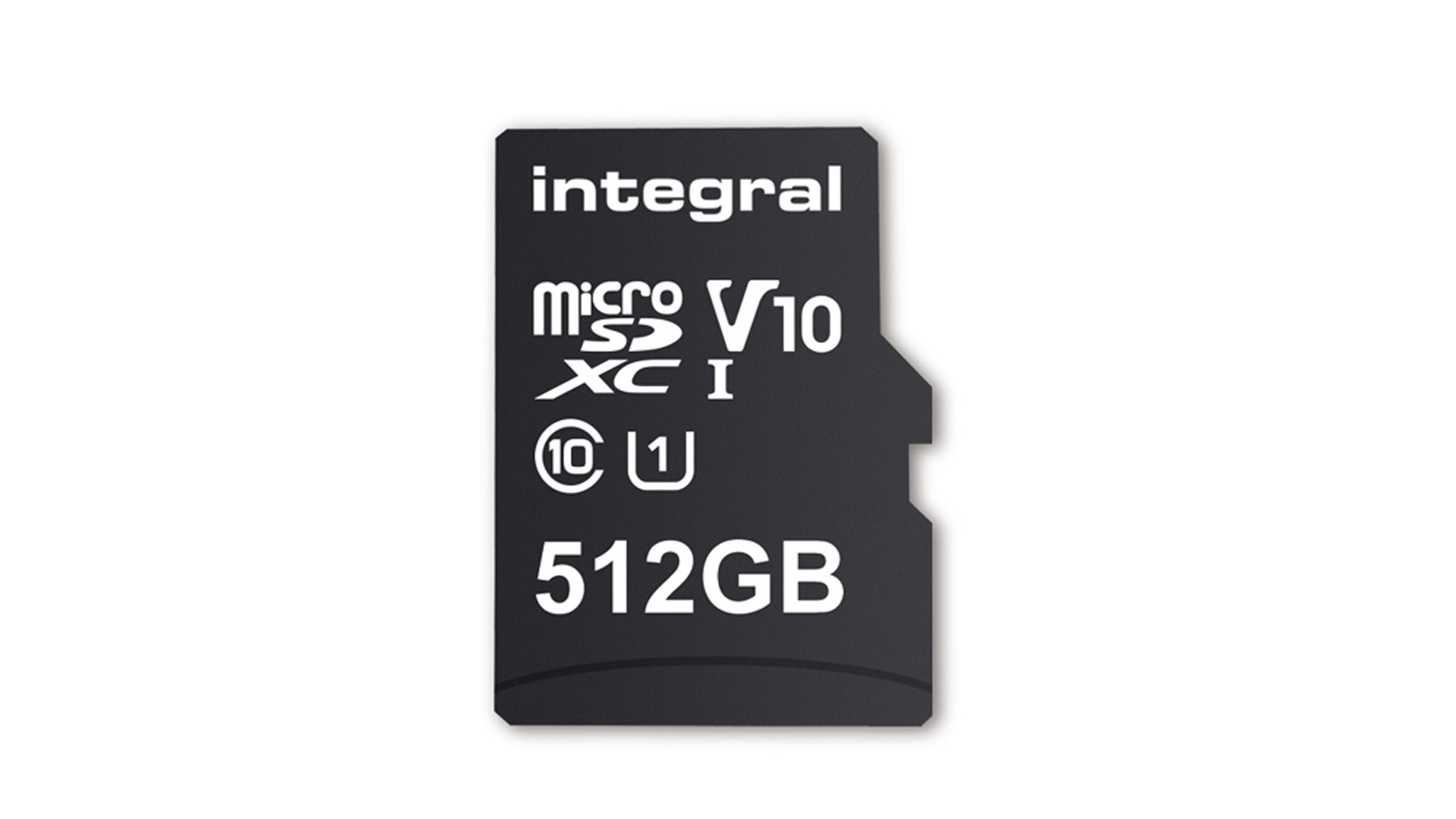This 512GB microSD card is the biggest on the market - and ready for your phone
All hail the new king of microSD cards

UK-based company Integral Memory has launched a new 512GB microSD, which is the first to be able to hold more than half a terabyte of data.
The new 512GB card exceeds the previous record held by SanDisk’s 400GB card, packing in over a quarter more storage. Although the 400GB card from Sandisk is faster, with an 80MB/s transfer speed Integral’s latest card still meets the standards for apps and 4K video recording.
It’ll work with any device that supports microSDXC, which is most Android phones and tablets, as well as some PCs, like the Microsoft Surface Pro.
Mega memory
James Danton, Marketing Manager at Integral Memory said: “The need to provide extended memory for smartphones, tablets and a growing range of other mobile devices such as action cams and drones has been answered. As a company, we are very proud to be the first to achieve the 512GB capacity milestone in microSDXC, worldwide.”
Integral Memory’s 512GB behemoth will be available in February and although there’s been no official word on price yet Sandisk’s 400GB card retails for around £219.99, so we expect it to have a higher price tag.
Of course the microSD card is likely to be too big and too expensive for most average users, unless you have hefty storage needs or shoot tonnes of 4K video. But it’ll definitely give you bragging rights that you’ll have the storage capacity of a small laptop in a card that’s the same size as a penny - plus you’d never have to worry about running out of storage ever again.
Get daily insight, inspiration and deals in your inbox
Sign up for breaking news, reviews, opinion, top tech deals, and more.
Becca is a contributor to TechRadar, a freelance journalist and author. She’s been writing about consumer tech and popular science for more than ten years, covering all kinds of topics, including why robots have eyes and whether we’ll experience the overview effect one day. She’s particularly interested in VR/AR, wearables, digital health, space tech and chatting to experts and academics about the future. She’s contributed to TechRadar, T3, Wired, New Scientist, The Guardian, Inverse and many more. Her first book, Screen Time, came out in January 2021 with Bonnier Books. She loves science-fiction, brutalist architecture, and spending too much time floating through space in virtual reality.
